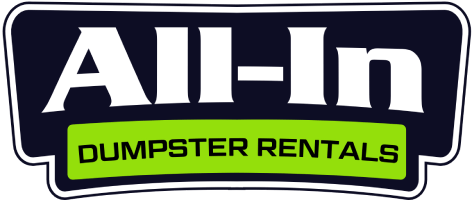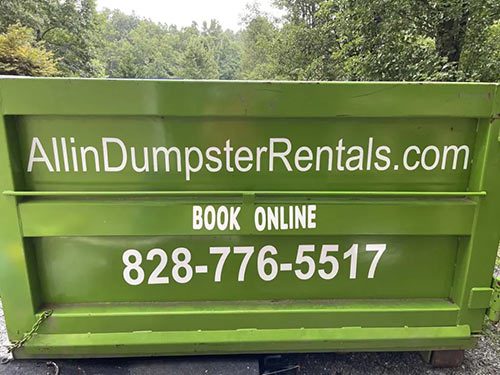Understanding Dumpster Rental Pricing in Asheville: What Really Affects Your Quote
When tackling a home renovation, cleanout, or construction project in Asheville, one of the most practical decisions you’ll make is renting a dumpster. But many locals are surprised by the variation in pricing they encounter when shopping around. As someone who’s helped countless Western North Carolina residents with their waste management needs, I’ve noticed that understanding what drives these costs can help you make smarter decisions and potentially save hundreds of dollars.
Here in the mountains of Western North Carolina, dumpster rental pricing works a bit differently than in flatter, more urban areas. Our unique topography, winding mountain roads, and seasonal considerations all play into how local companies like ours determine costs. Whether you’re renovating a historic home in Montford, clearing land in Henderson County, or managing construction debris in West Asheville, knowing these factors can help you budget more accurately and avoid surprises when the bill arrives.
Size Matters: How Container Dimensions Impact Your Bottom Line
The most obvious factor affecting dumpster rental prices is size. In Asheville, most rental companies offer containers ranging from 10 to 40 cubic yards. While it might seem logical to simply choose the smallest (and typically cheapest) option, this approach can backfire.
A 10-yard dumpster, which typically costs between $250-$350 in the Asheville area, works well for small bathroom renovations or garage cleanouts. However, if you’re tackling a whole-home renovation in a typical North Asheville bungalow, you’ll likely need at least a 20-yard container, which ranges from $350-$450.
Interestingly, the price doesn’t scale proportionally with size. The jump from a 20-yard to a 30-yard dumpster might only add $75-$100 to your total, despite offering 50% more capacity. This is because a significant portion of rental costs comes from delivery, pickup, and processing rather than just the container size itself.
For larger projects common in growing areas like South Asheville or Arden, a 40-yard container may be necessary. These typically range from $475-$575 locally, but the cost-per-cubic-yard makes them one of the most economical options for major renovations or new construction.
Location, Location, Location: How Your Asheville Address Affects Pricing
If you’ve lived in Western North Carolina for any length of time, you know that “Asheville” can mean very different things depending on exactly where you’re located. Delivery distance from the waste management facility significantly impacts pricing, and this is especially true in our mountainous region.
Properties within Asheville city limits typically enjoy the most competitive pricing. However, if you’re in more remote areas of Buncombe County or neighboring counties like Madison or Haywood, you might see an additional $50-$100 delivery fee added to your quote.
The mountain terrain around Asheville presents unique challenges too. Steep driveways common in areas like Town Mountain or Elk Mountain can require specialized delivery vehicles or additional staff, sometimes incurring a premium. Similarly, narrow roads in historic neighborhoods or rural areas might necessitate smaller trucks, which can affect pricing.
As a local provider deeply familiar with Western North Carolina’s geography, we’ve designed our pricing structure to be fair across the region, but it’s always worth asking about any location-based fees when getting quotes.
Weight Considerations: The Hidden Factor in Dumpster Pricing
Perhaps the most misunderstood aspect of dumpster rental pricing is weight limits. Most rentals in the Asheville area include a set weight allowance, typically between 2-4 tons depending on container size. Exceed this limit, and you’ll face overage charges that can quickly add up.
Different materials weigh dramatically different amounts. A dumpster full of household junk or yard waste might stay well within weight limits, while one filled with concrete, brick, or soil from your Black Mountain cabin renovation could exceed limits with the container only half full.
These overage fees typically range from $50-$75 per ton in the Asheville market, which can add hundreds to your final bill if you’re not careful. Local knowledge matters here – experienced Asheville dumpster providers can help you estimate the weight of your specific project materials and recommend the appropriate container size and weight allowance.
If you’re handling dense materials like roofing shingles (common after our occasional mountain hailstorms) or concrete, ask about specialized heavy material dumpsters. These might have a higher initial price but include more generous weight allowances that could save money overall.
Rental Duration: Time Is Money in Asheville’s Busy Market
Standard rental periods in Asheville typically range from 7-10 days, which works well for most residential projects. However, with Asheville’s growing popularity and construction boom, flexibility on timing can affect your quote.
If you need a container during peak seasons (spring and fall being particularly busy in Western North Carolina), you might pay a premium. Conversely, scheduling your project during slower winter months might yield better rates from local companies eager for business.
Extended rentals beyond the standard period usually incur daily fees ranging from $10-$20 in the local market. These charges reflect the opportunity cost for rental companies during busy periods when containers are in high demand throughout Buncombe County and beyond.
Some Asheville providers offer discounted rates for very short-term rentals (3 days or less), which can be perfect for focused weekend projects. Others might have flexible extensions for weather delays – particularly useful given our unpredictable mountain weather patterns that can stall outdoor projects.
Material Restrictions and Specialized Waste Handling
Asheville and surrounding Western North Carolina communities have specific regulations about waste disposal, and these regulations directly impact pricing. Standard dumpster rentals generally prohibit hazardous materials, electronics, tires, and certain appliances.
Disposing of restricted items incorrectly can result in significant fines from local waste management authorities. Most Asheville dumpster companies charge additional fees if prohibited items are found in your container – sometimes $50-$100 per item plus any actual disposal costs.
For specialized waste streams common in our area – like large amounts of yard waste after clearing mountain lots, or construction debris from the many renovation projects happening in Asheville’s historic districts – dedicated containers might be available at different price points.
Some materials require special handling at Buncombe County disposal facilities, which is reflected in rental pricing. For example, clean, segregated concrete or asphalt can often be recycled at lower rates than mixed construction debris, potentially saving money if properly sorted.
Hidden Fees and Charges to Watch For
When comparing dumpster rental quotes in Asheville, be alert for potential hidden charges that might not be immediately obvious. Delivery fees, fuel surcharges, environmental fees, and permit costs can all add to your bottom line.
Permits are particularly relevant in downtown Asheville, historic districts, or HOA-governed communities like Biltmore Park or Reynolds Mountain. If your dumpster needs to sit on a public street, the City of Asheville requires permits that typically cost $25-$50 per day. A reputable local company will help navigate this process, but the costs may not be included in your initial quote.
Some companies advertise low base rates but add numerous fees later. Others (like us) prefer transparent, all-inclusive pricing that might appear higher initially but prevents surprise charges when the final bill arrives. When getting quotes, always ask specifically about any additional fees that might apply to your situation.
Trip charges for failed deliveries due to inaccessible locations – not uncommon in our mountain communities with steep driveways or low-hanging power lines – can add $75-$100 to your costs. Clear communication about your property’s access challenges can help avoid these charges.
Seasonal Pricing Fluctuations in Western North Carolina
Asheville’s seasonal patterns affect dumpster rental prices in ways you might not expect. Spring cleaning season (March-May) and fall (September-October) typically see the highest demand and potentially higher prices as locals prepare for our tourist seasons.
Construction activity also follows seasonal patterns in our mountain climate, with more projects breaking ground in late spring and summer when weather is most reliable. This increased demand can drive prices up during these peak periods.
Conversely, winter months often see reduced rates as demand decreases. If your project timeline is flexible, scheduling during December-February might yield savings of 10-15% from some local providers eager to keep their equipment working during slower periods.
Weather-related events specific to our area can also create unexpected demand spikes. After major storms or flooding events in the French Broad River basin, cleanup efforts can lead to temporary shortages of available dumpsters and corresponding price increases.
Local vs. National Companies: Price and Service Differences
The Asheville market has both national waste management chains and local, family-owned dumpster rental companies like ours. This distinction often affects both pricing and service quality.
National companies typically have standardized pricing structures that might not account for Asheville’s unique geography and local disposal regulations. Their economies of scale sometimes allow for competitive base rates, but additional fees for mountain deliveries or weight overages can add up quickly.
Local companies generally offer more flexible pricing tailored to specific neighborhoods and project needs. We understand the challenges of delivering to a steep Swannanoa property or navigating the narrow streets of historic Montford. This local knowledge often translates to more accurate quotes and fewer surprise charges.
Service responsiveness is another factor worth considering alongside price. Local companies typically provide more personalized customer service and quicker response times to schedule changes or pickup requests – valuable advantages during time-sensitive projects or when dealing with our unpredictable mountain weather.
Making Smart Dumpster Rental Decisions in Asheville
After helping countless Western North Carolina residents with their waste removal needs, I’ve found that the cheapest quote rarely equals the best value. Consider these practical tips when evaluating dumpster rental options for your Asheville project:
Get at least three quotes from different providers, making sure each understands your exact location and project details. Ask specifically about any additional fees beyond the base rate. Many Asheville neighborhoods have unique access challenges that can affect final pricing.
Be realistic about your timeline and material volume. It’s typically more cost-effective to rent a slightly larger dumpster than to incur overage fees or need a second container. For major home renovations in larger Asheville properties, this calculation is particularly important.
Consider value-added services that might justify higher rates. Some local companies offer same-day delivery (crucial for urgent storm cleanups), weekend service (ideal for DIY warriors), or special accommodations for difficult access properties common throughout Buncombe County.
By understanding these pricing factors and asking the right questions, you’ll be better equipped to make informed decisions for your waste management needs in beautiful Western North Carolina. Whether you’re renovating a historic Montford home, clearing land in rural Madison County, or managing construction debris in booming South Asheville, the right dumpster at the right price makes your project run smoother.
Remember that beyond price, working with a company that understands the unique character and challenges of the Asheville area ensures a smoother experience and often better value in the long run.

